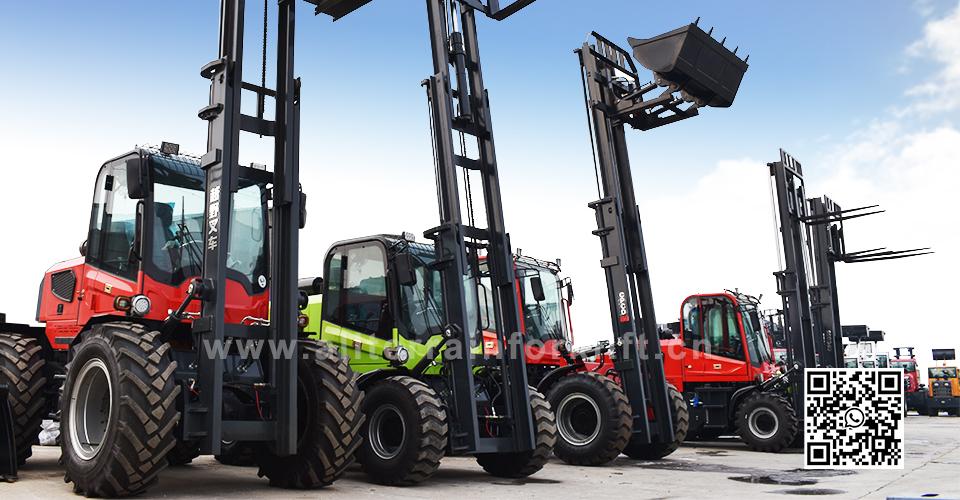News

Fuel efficiency is a critical consideration in the world of off-road forklifts, where performance and economy converge to drive productivity. This article explores the factors influencing fuel consumption in these versatile machines and how advancements contribute to both environmental sustainability and cost-effectiveness.

1. Engine Technology and Power Balance: The heart of any off-road forklift lies in its engine. Modern machines are equipped with advanced engine technologies that strike a balance between power and fuel economy. These engines are designed to deliver optimal performance while minimizing fuel consumption.
2. Adaptive Transmission Systems: Off-road forklifts often encounter diverse terrains, from rough construction sites to challenging outdoor environments. Adaptive transmission systems play a crucial role in optimizing gear shifts, ensuring the engine operates efficiently across varying loads and terrains.
3. Hydrostatic Drive Systems: Hydrostatic drive systems, a hallmark of many off-road forklifts, offer seamless control and energy efficiency. These systems enable precise speed and direction adjustments, reducing unnecessary fuel consumption during operation.
4. Load Sensing and Power Management: Load sensing technology is integrated into modern off-road forklifts, allowing the machine to adapt its power output based on the load it carries. This intelligent power management not only enhances performance but also contributes to fuel savings.
5. Tire Selection and Traction: Proper tire selection is crucial for minimizing fuel consumption. Tires optimized for off-road conditions provide improved traction, reducing the effort required to navigate challenging terrains and consequently lowering fuel usage.
6. Aerodynamics and Design Efficiency: Attention to design efficiency and aerodynamics contributes to reduced fuel consumption. Streamlined designs and well-placed components help minimize wind resistance, ensuring the forklift moves through the air with less effort.
7. Regular Maintenance Practices: Regular maintenance is key to preserving fuel efficiency. Keeping engines tuned, ensuring proper tire pressure, and addressing any issues promptly contribute to sustained fuel economy over the lifespan of the forklift.
8. Environmental Impact and Sustainability: Beyond cost savings, fuel-efficient off-road forklifts align with global efforts toward environmental sustainability. Lower fuel consumption translates to reduced emissions, making these machines more eco-friendly in their operation.
Fuel efficiency is a paramount consideration in the realm of off-road forklifts, where technological advancements and smart design converge to balance performance and sustainability. As the industry continues to evolve, a focus on fuel-efficient practices ensures that these versatile machines not only excel in their tasks but also contribute to a greener and more economical future.

Copyright © 2020-2024 Shandong GZ Forklift Co., Ltd. All Rights Reserved. | Sitemap